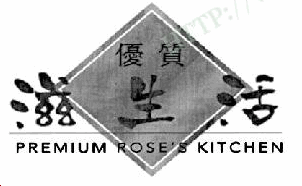Determination of a Trademark as Being “Deceptive and Misleading” - A Successful Trademark Refusal Review represented by Unitalen
October 31, 2017Shandong New Hope Liuhe Group Co., Ltd (hereinafter referred to as “New Hope”) filed an application for registration of trademark  in Class 29 in respect of meat products, etc., which was rejected by Trademark Office in accordance with Article 10 Paragraph 1 (7) of the Trademark Law, on the ground that the characters “優(yōu)質” (meaning “excellent quality”) therein is apt to mislead consumers with regard to the quality and characteristics of the designated goods.
in Class 29 in respect of meat products, etc., which was rejected by Trademark Office in accordance with Article 10 Paragraph 1 (7) of the Trademark Law, on the ground that the characters “優(yōu)質” (meaning “excellent quality”) therein is apt to mislead consumers with regard to the quality and characteristics of the designated goods.
New Hope, represented by Unitalen, applied for review of the refusal decision. According to Trademark Review and Adjudication Board (TRAB), the trademark, as a whole, is capable of identifying the source of products, is not apt to mislead consumers and is not deceptive, so there is no constitution of any circumstances stipulated in Article 10 Paragraph 1 (7) of the Trademark Law. The trademark is therefore granted with preliminary approval.
Typical Significance
In determining whether a trademark is deceptive, it shall be based on the common knowledge of the relevant public, focusing on the major distinctive part of the trademark, combined with the actual effect presented by the trademark, so as to evaluate whether the trademark as a whole is able to identify the source of products. It shall not fall within the circumstances stipulated in Article 10 Paragraph 1 (7) of the Trademark Law, if it is not sufficient to cause misconception based on the daily life experience or the common knowledge of the relevant public.
In this case, although the trademark contains the wording of “優(yōu)質”(excellent quality), the trademark is composed the Chinese “優(yōu)質滋生活”, English “PREMIUM ROSE’S KITCHEN” and design. Among these elements, “滋生活” is a made-up word and is displayed in a prominent manner.“優(yōu)質” does not describe the quality of the products directly; instead, it is to embellish the word “滋生活”. “優(yōu)質滋生活” as a whole delivers the message of a positive attitude toward excellent life, which is different from the scenarios such as “優(yōu)質芝麻” (excellent sesame) and “優(yōu)質雜糧” (excellent grains) that describe the product quality directly. Therefore, although the trademark comprises the word “優(yōu)質”, consumers are unlikely to have excessive expectation of the quality of the products based on their daily experience.




